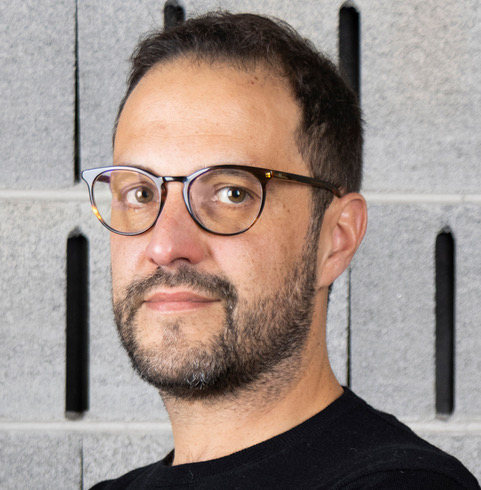26 a 26 Jun. 2025 - 12:00
Connections in the AHR: a Ticket to Multiple Destinations in Host-Microbe Interactions and Therapy
Pedro Moura Alves, PhD, Instituto de Investigação e Inovação em Saúde, Universidade do Porto
26 a 26 Jun. 2025 - 12:00
Pedro Moura Alves, PhD, Instituto de Investigação e Inovação em Saúde, Universidade do Porto

Rita Fior, PhD, Cancer Development and Innate Immune Evasion Lab
Seminar room
The interaction between a bacterial pathogen and its host can be viewed as an “arms race” in which each participant continuously responds to the evolving strategies of the other partner. A mechanism that enables bacteria to adapt to changing circumstances rapidly is provided by density-dependent cell-to-cell communication, known as Quorum Sensing (QS). QS involves a hierarchy of signaling molecules, which in pathogenic bacteria is associated with biofilm formation and virulence regulation. We hypothesized that if a host sensor can detect and differentiate between bacterial quorum-sensing (QS) molecules and their expression patterns, it will enable hosts to tailor their immune responses according to the stage and state of infection.
Utilizing various in vitro and in vivo model systems (e.g., zebrafish and mouse), we demonstrate that infected hosts exhibit differential modulation of the Aryl Hydrocarbon Receptor (AHR) signaling pathway throughout a bacterial infection. AHR modulation depends on the relative abundances of different QS molecules, whereby their quantitative assessment enables the host to sense bacterial community densities that may have distinct gene expression programs and infection dynamics. The AHR can sense and bind to diverse microbial-derived ligands, thereby regulating various host defense mechanisms, including ligand degradation, the expression of pro-inflammatory mediators, immune cell recruitment, and bacterial clearance. By sensing infection dynamics, the AHR regulates diverse host defense mechanisms and impacts bacterial clearance. In all, our current and previous work reveals that the AHR plays a significant role in host defense to various microbial infections. Furthermore, it unveils that AHR, in addition to infection, is modulated by antibiotics and other drugs, which impacts therapeutic efficacy.
Dr. Moura Alves is an independent group leader and ERA Chair Holder (ImmunoHub) at the i3S (Instituto de Investigação e Inovação em Saude/ Universidade do Porto (Porto, Portugal). Dr. Moura- Alves studied Biochemistry at Universidade da Beira Interior (Covilhã, Portugal). Soon after, joined the Graduated Program in Areas of Basic and Applied Biology (GABBA) at the University of Porto (Portugal). In 2005, moved to Boston (USA) to start his PhD at the Partners AIDS Research Center/Massachusetts General Hospital/ Harvard Medical School. In 2007, returned to Portugal, to the Instituto de Medicina Molecular- João Lobo Antunes, Lisboa. After finishing his PhD in 2010, Dr. Moura Alves joined the group of Prof. Dr. Dr. Stefan Kaufmann at the Max Planck Institute for Infection Biology (Berlin, Germany), as a postdoctoral fellow. In March 2019, Dr. Moura Alves started his independent research group at the Ludwig Institute for Cancer Research/University of Oxford (Oxford, UK), which he led until moving to his current position in Porto.
Register here.
Champalimaud Research (CR) Colloquia Series is a seminar programme organised by the Champalimaud Centre for the Unknown to promote the discussion about the most interesting and significant questions in neuroscience and physiology & cancer with appointed speakers by the CR Community.
